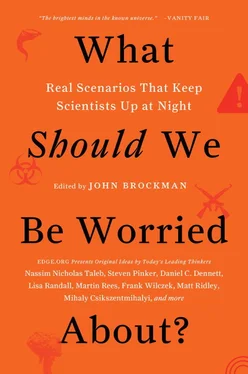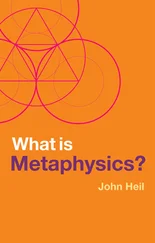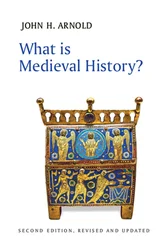The pagination of this electronic edition does not match the edition from which it was created. To locate a specific entry, please use your e-book reader’s search tools.
acceptance versus worry, 209
access tiers, 408
accidental multiverse, 189
activity rhythm, 43
actual threats, 370–71
Adam and Eve, 61
Adams, Douglas, 50–51
adaptive language of fitness (Wright), 265–66
ADHD, 313, 376
Afghanistan, 2, 115, 158, 215, 299, 347
afterlife, 200, 225
Age of Anxiety, 403–4
Age of Reason, 337
aggregators, data, 347
aggression, 5
aging population, 59, 119–20, 124, 225–37, 283–84, 289, 292–94, 370–71, 407, 478
AIDS/HIV, 46, 126, 201
airport security, 437
air-traffic control, 12
Akin, Todd, 140
alcohol use, 46, 84, 370
Alexander, Stephon H., 438–39
aliens, space, 72–76
Allen, Woody, 136
alloparents, 381–82
Almheiri, Ahmed, 183
Alter, Adam, 399–400
Altmeyer, Robert, 279
Alzheimer’s disease risk profile, 407
American Mathematical Society (AMS), 388
American Psychiatric Association (APA), 84
Amish, 65
anesthesia, 29
AngelList, 445
Animal Liberation Front, 50–51
Aniston, Jennifer, 156
anomalies, 180–83
Anonymous, 353
anthropocebo effect, 213
Anthropocene Age, 10, 210–11, 213
anthropology, 51, 82, 146–49, 418
antibiotics, 201
anti-matter, 356–57
anxiety, 284, 285, 370, 373–76, 403–4
Apple Computer, 320–21
Archilochus, 51
Archimedes, 421
Argentina, 450
Arikha, Noga, 427–30
Aristotle, 105, 207, 336
Armageddonists, 3, 10, 60–64, 62–64, 72
Armstrong, Lance, 269, 270–71
Armstrong, Neil, 268
arrogance, 269–71
art, 215
artificial intelligence (AI), 349–51, 413, 448–49. See also robots; Singularity, The
asteroids, 147
Atran, Scott, 80–82
augmented reality, 77
auroras, 19
Australia, 119
authoritarianism, 15, 277–79
autism, 201, 263, 292–93, 299–301, 376–78
bacteria, 201–2, 295–98, 338–39
Baldwin, Stanley, 379
Barlow, John Perry, 316–17
Baron-Cohen, Simon, 417–20
Bateson, Mary Catherine, 456–57
Bayes’ Theorem, 471
Beethoven Ludwig van, 206–7
behavioral economics, 104
behavioral genetics, 104
bell curve, 468–69, 472
Benford, Gregory, 67–71
Bergen, Benjamin, 48–49
Berlin, Isaiah, 51
Berlinski, David, 389
Berreby, David, 233–37
Big Bang, 195
Bigelow Aerospace, 69
binomial probabilities model, 470–71
BioBricks, 23
biocomputers, 22
biofuels, 149
Bio-Lego, 23
biological engineering, 22–23
biometric data privacy, 284, 406–9
biophilia, 313
biosphere, 109
biotechnology, 448–49
bioterrorism, 12, 20
Bjork, Robert, 398
black-hole information-loss paradox, 182, 185, 187
Blackmore, Susan, 306–9
Black Plague, 120, 210
blacks, 438–39
Black Swans, 464–67, 469
Blake, William, 127
Blakemore, Sarah-Jayne, 45–47
Boccaletti, Giolio, 332–35
Bohm, David, 193
Bohr, Niels, 186, 192, 282
Boko Haram, 63–64
Bomblies, Kirsten, 431–32
bonding, 86–89
Borges, Jorge Luís, 450, 452
Born, Max, 282
Borwein, Jonathan, 385
Bosch, Hieronymus, 40
Bostrom, Nick, 448
Botox, 167
Bowles, Samuel, 360
BP (British Petroleum), 35
Brahms, Johannes, 415
brain. See neuroscience
Brassier, Ray, 216
Brazil, 233
breast cancer, 286–88
Bredekamp, Horst, 215
Brockman, John, 417–18
Broecker, Wallace S., 448
Bronze Age, 210
Brooks, Rodney A., 123–24
Brower, David, 50
Buddhism, 62, 81
bullying, 94, 166, 269–71
Buss, David M., 154–57
calculators, 384
calibrated peer evaluation, 385
cancer, 201, 230, 270–71, 286–88, 293, 295–98, 303, 370, 471–72
cannabis, 46
capture concept, 35–37
carbon cycle, 210–12, 237
Carlin, George, 48
Carr, Nicholas G., 41–44
cascading crises, 12–13, 16, 436–37
catastrophic risks, 9–13, 146–49, 204
catharsis, 206–8
Catholicism, 62–63, 65
cell phones, 14
censorship, 48–49, 316–17. See also freedom of expression
CERN, 174–80, 183, 197, 198–99, 273, 280
Challenger disaster, 268
Chalupa, Leo M., 424–26
cheating, 269–71, 331, 432, 458
chemotherapy, 287, 295
chess, 39
children, 220–21, 244, 247–48, 313, 399–400, 437
brain development, 45–47
language acquisition and, 48–49, 419–20
parents and, 31, 379–82
reproductive biotechnology, 23, 118–22
with special needs, 376–78
technology use, 39–40, 93–97, 319–20, 399–400
China, 5, 68, 102, 111, 114–17, 123–24, 233–35, 238–39, 317, 440, 442
Chinese Room thought experiment, 28–29
Chomsky, Noam, 135
Christadelphians, 62
Christakis, Nicholas A., 421–23
Christian, David, 107–9
Christianity, 62–63, 65, 81
CIPD (Chartered Institute of Personnel and Development), 283
circle of empathy (Lanier), 359
Clark, Andy, 349–51
Clarke, Arthur C., 168
Clausewitz, Carl von, 4
climate change, 2, 9, 11–12, 59, 68, 82, 211, 308–9, 358, 366, 371, 373, 448, 449, 456–57
cloning, 23
clouds, 34
coal, 69
Cohen, Joel E., 233–34
cold war era, 6–8, 10–11
Colombia, 251
coma, measuring consciousness, 414
complementarity, 185–86
complex systems, 19–21, 78–79, 101
computers. See also artificial intelligence (AI); Internet
augmented reality, 77
automation trend, 289–90
blind spots related to, 210–12
cognitive consequences of electronics, 461–63
data disenfranchisement, 171–73
digital revolution, 31, 134
Druid/Engineer divide, 50–52
fascism and, 166–67
illusion of knowledge and understanding with, 396–98
loss of intellectual humility, 396–98
objects of desire, 93–97
positive contributions of, 244–45
posthuman geography and, 352–54
risk to liberal democracy, 240–45
“smart” solutions, 53–55
stifling of progress, 56–57
touch interface and, 310–11, 454–55
use by children, 39–40, 93–97, 319–20, 399–400
virtual reality, 38–40
wearable monitoring devices, 284, 406–9
conjugacy, 471–72
connectedness, 12–13, 16, 17–18, 78–79, 280–82, 436–37
conquest, as aggression, 5
conscientiousness, 478
consciousness, 26–29, 32–33, 135–38, 414, 473–74
contraception, 62–63
conversation, fear of, 93–94
cooperation, 358–67, 371–72, 376–78
Copenhagen Institute, 282
Copernicus, Nicolaus, 198
copyright, 255, 316, 317
coronavirus, 202
corporations, 352–53, 459
Correlates of War Project, 105–6
corruption, 244, 250–53, 269–71
coupling, 78–79
courseware, 320
crash of 1987, 464
Creation, 61
credit agencies, 172
creolization of the world (Glissant), 214–17
Crick, Francis, 267
crime, 221–22, 238–39, 244, 250–53, 259–60, 284, 315–18, 408–9, 437, 440–43
Cronin, Helena, 127–30
crowd sourcing, 408
crowd wisdom, 79
Crutchfield, James, 20–21
Csikszentmihalyi, Mihaly, 38–40
Cuban missile crisis, 10, 11
cultural evolution, 431–32
Читать дальше












